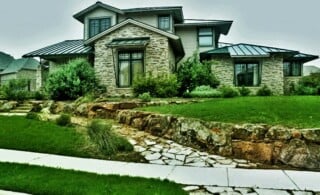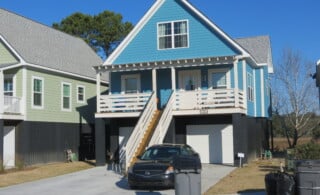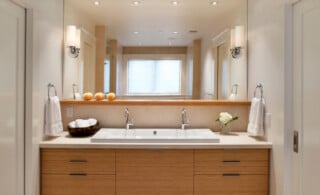
Members of the LGBTQ community and their allies have created safe places where they can feel comfortable, welcome, and free to be themselves, both in public areas and in the privacy of their own homes. The most LGBTQIAPK-friendly places in the United States have several things in common, many of which you can duplicate in your neighborhood.
No matter your sexuality or gender, you can create a more LGBTQ-friendly neighborhood by duplicating some of these same features. Through simple demonstrations of solidarity, welcoming, and active support of LGBTQIAPK businesses and services, you and your neighbors can make it known that you support them and are invested in their happiness.
Paint the Town
One of the easiest ways to express your support is to incorporate LGBTQ symbols and traditions into your neighborhood. From simple design elements on your property to neighborhood-wide events, these public displays of inclusion are a must for any LGBTQ-friendly block:
- Display a flag. You can stake a garden flag, install a decorative house flag, or put up a flagpole on your property and equip it with any number of LGBTQ-friendly flag designs that proclaim your identity or confirm your status as an ally.
- Install signage. If you want to be more explicit, consider a yard sign or a roadside sign with a message of acceptance. You can hire a nearby sign company to design and install it. As long as you are posting it on your property and the message is tasteful, you don’t need anyone’s permission. If you are part of a homeowners association (HOA), though, you should review your contract to avoid HOA problems and complaints. If you want to modify your neighborhood signage or place a sign on public property, you’ll have to check with your neighbors, as well as applicable local government entities, first.
Support LGBTQ Business Owners
Another simple way to create an LGBTQ-friendly neighborhood is to support the members of that community who own, operate, and work at businesses in your area. By eating at their restaurants, purchasing their products, and utilizing their services, you are helping them survive and thrive, and allowing them to give back as well.
But that’s not all you can do to support LGBTQ business owners. Here are a few more ideas:
- Could you work with them? Are you the president of the PTO? Does your business host a quarterly networking event? Do you need to hire a local contractor to do some work on your home or office? In addition to giving them your business, use local suppliers for professional partnerships as well.
- Could you promote them — online and in person? Word of mouth is a powerful marketing tool. When someone you know is looking for a business recommendation, whether via a social media post or face-to-face request, consider LGBTQIAPK-owned businesses. You can also go the extra mile by giving them a positive online review, sharing their social media posts, and keeping business cards or brochures on hand to pass along.
- Could you stand up for them? Even now, not everyone respects members of the queer community. If you hear someone expressing concern about a business due to the sexuality or identity of the people who own it, operate it, or work there, say something. While you should never put yourself in danger, standing up for queer community members in a respectful way can stop rumors and facilitate understanding.
Provide Services for the LGBTQ Community
While one of the goals of an LGBTQ-friendly neighborhood is to foster a feeling of acceptance, regardless of differences, we must also acknowledge the unique culture and challenges that members of the community face. From bullying and mental health conditions to healthcare access and religious discrimination, many of the issues members of the queer community face are inherently different from those faced by heterosexual and cisgender citizens. That’s why it’s so important to ensure our neighborhoods feature organizations specifically designed to meet their needs, such as:
- Youth organizations
- Homeless services
- Transgender support
- Eldercare
- HIV/AIDS services
- Worship opportunities
- Entertainment
Of course, genuinely embracing diversity means your support should extend to all groups of people, including people of different ages, races, backgrounds, and abilities. Not only are many LGBTQIAPK people also members of these groups, but their differences have also caused them to experience discrimination. So, don’t hesitate to extend these ideas to people of color, children and the elderly, people of different socioeconomic standing, and people with disabilities. Once you do, you’ll be well on your way to creating an inclusive neighborhood for decades to come.
 Engineering the Future: The Educator’s Guide to Building and Construction
Engineering the Future: The Educator’s Guide to Building and Construction  Green Building Glossary
Green Building Glossary  Have It Your Way with a Custom Builder
Have It Your Way with a Custom Builder  Katrina Cottages – More Than a Temporary Solution
Katrina Cottages – More Than a Temporary Solution  Report from PCBC: New Home Construction
Report from PCBC: New Home Construction 

Are You Familiar With This Topic? Share Your Experience.